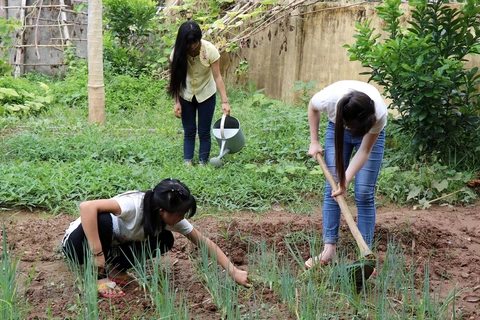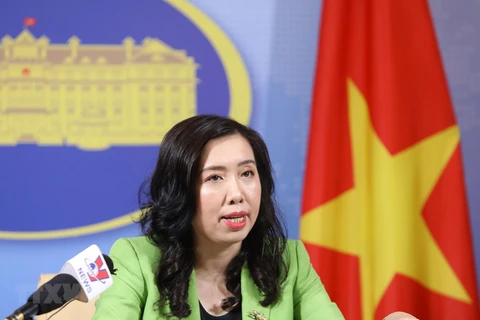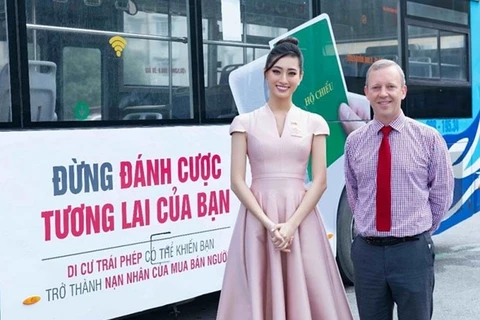Hanoi (VNS/VNA) - Victims of human trafficking who are uninsured will be granted health insurance cards free of charge.
In case they are seriously ill, the cost of medical examination and treatment at the medical facilities will be exercised in line with health insurance regulations.
These proposals are part of a draft decree initiated by the Ministry of Labour, Invalids and Social Affairs (MOLISA) which details the execution of some articles of the Law on Human Trafficking Prevention and Combat. It aims at addressing inadequacies in assisting the victims.
The decree said people who will get support are Vietnamese citizens, stateless people permanently residing in Vietnam, foreigners being trafficking in Vietnam, and those who are waiting for verification as victims as prescribed in Articles 24 and 25 of the laws and under legal age who accompany with the victims.
During their stay at social protection establishments, survivors of trafficking are supposed to be provided with support for essential needs including meals and other items for personal hygiene in accordance with the State regulations on social support policies for those residing in social protection centres.
In case the victim dies, the social protection establishment will be responsible for organising a funeral if their relatives have not arrived in time (24 hours after competent agencies confirm the death) or are unable to do so, according to the draft decree.
The victims are counseled during their stay at social protection establishments. For juvenile victims, the establishments are supposed to be responsible for assessing the safety of the victims before they return them to their family or their residence.
In addition, Labour, Invalids and Social Affairs offices at localities, the police and border guards are assigned to ensure the safety of the survivors of trafficking in case of need.
Deputy Minister of Labour, Invalids and Social Affairs Nguyen Thi Ha, head of the compiling committee, said positive results have been made after 10 years of implementing the Law on Human Trafficking Prevention and Combat.
However, she said, problems have arisen during the reception and supporting of the victims.
“Returned victims of trafficking are usually from disadvantaged families and have poor education. Their emotional state is not stable,” she said at a meeting on the draft decree which was held in late June.
In many cases, the victims were rescued or returned by themselves without personal papers and they failed to inform local authorities.
As a result, it was very difficult for competent agencies in verification, accessing the victims and assisting them, Ha said.
The fact that foreign agencies do not provide the exact date poses challenge for Border Guards and Police in receiving and providing initial support for the victims. Lack of adequate facilities was also a problem.
Ha said the compiling of the decree was necessary to ensure that human trafficking victims receive comprehensive support and can reintegrate into the community in a sustainable manner./.
VNA























